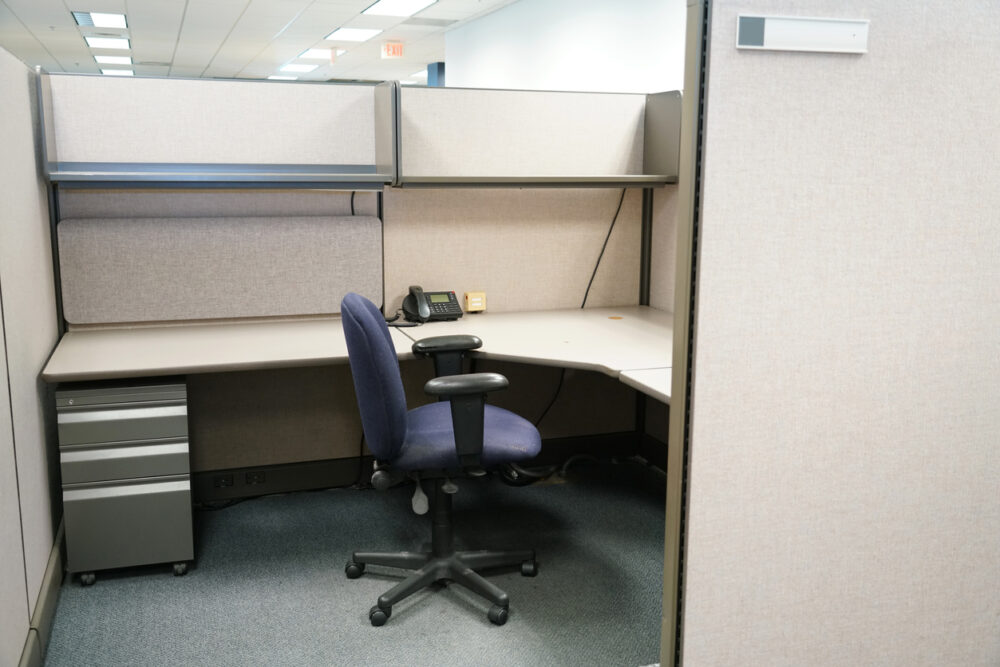It’s not always about productivity—it’s about power, pride, and paranoia.

Remote work sounded like a dream until bosses started dreaming up reasons to drag everyone back to the office. The shift to working from home proved people could get their jobs done just fine without spending hours in traffic or crammed into office cubicles. Yet some managers just couldn’t stand it. They started hunting for reasons—any reason—to justify yanking that flexibility away.
The truth is, it’s rarely about poor performance or broken collaboration. It’s about control, outdated habits, and fragile egos. Some leaders feel threatened when they can’t physically see their team. Others miss the hustle and bustle because it strokes their sense of importance. The office becomes less about work and more about proving who’s in charge. These ten petty reasons reveal exactly why some bosses are still clinging to the old ways—and why remote workers are right to roll their eyes.
1. They think empty desks make them look weak.

Some managers treat a full office like a trophy. Seeing empty desks feels like losing status or authority, according to Jane Thier at Yahoo Finance. It’s not about whether you’re getting work done—it’s about how impressive their team looks when outsiders walk through the door.
That insecurity drives irrational decisions. Instead of trusting performance data or project outcomes, they chase the illusion of productivity through physical presence. It becomes a matter of image, not effectiveness. And that need to impress others often comes at the cost of employee morale and trust.
2. They miss the feeling of being in charge.

Being a boss is easier when everyone’s in one place. Giving instructions, holding impromptu meetings, or scanning faces for feedback feeds a sense of control. When people are remote, that direct line of influence feels fuzzier—and some leaders don’t know how to manage without it, as reported by Kathy Mallark at Forbes.
So instead of adjusting their style or learning new tools, they campaign to bring everyone back. It’s not about results; it’s about personal comfort. They’re less interested in how well the team functions and more invested in how it feels to give orders in person.
3. They don’t trust people to actually work.

Old-school managers still believe that if they can’t see you working, you probably aren’t, as stated by Thomas Borer at Agile Rant. It doesn’t matter if deadlines are being met or quality is high. Their trust depends on physical visibility—and remote setups challenge that deeply rooted mindset.
That kind of thinking ignores data, undermines autonomy, and often leads to micromanagement. When a boss assumes the worst, it creates tension and unnecessary oversight. Employees start to feel like they’re under surveillance instead of being respected as professionals.
4. They want to justify expensive office leases.

Corporate pride and long-term leases don’t mix well with remote culture. When a company has poured millions into glossy office spaces, admitting they’re no longer essential feels like failure. Leaders would rather fill those seats than acknowledge they made a bad investment.
Instead of evaluating what’s best for the team or the bottom line, they cling to outdated metrics—like square footage per employee. That backward logic keeps butts in chairs, not because it helps the company, but because it protects egos and real estate deals.
5. They confuse face time with commitment.

In some workplaces, being seen matters more than what you accomplish. These bosses equate long hours in the office with dedication, even if those hours are filled with distractions, small talk, and meetings that go nowhere.
This mentality punishes efficiency and rewards performative loyalty. If you finish your tasks quickly at home, it looks less impressive than sipping coffee at your desk for ten hours. It’s a culture that prizes presence over purpose—and remote work makes that illusion harder to maintain.
6. They think company culture lives in ping pong tables.

Too many leaders confuse office perks with company culture. To them, remote work threatens team spirit because it strips away the casual chit-chat and taco Tuesdays. But real culture isn’t about forced fun or breakroom snacks—it’s about how people treat each other and work together.
When culture depends on proximity instead of values, it crumbles the second people log off. The resistance to remote work often masks a deeper fear: that their team won’t stay engaged without constant in-person interaction. It’s a lack of trust dressed up as concern.
7. They want to keep an eye on the “slackers.”

There’s always that one manager obsessed with tracking every break, every bathroom trip, every coffee refill. Remote work makes it harder for these control freaks to micromanage. They can’t monitor your every move, and that drives them nuts.
Instead of focusing on results or outcomes, they start implementing invasive tools and time-tracking software. It’s less about accountability and more about anxiety. They fear being out of the loop and project that worry onto the team in the form of surveillance.
8. They fear becoming irrelevant.

Remote work empowers employees to take more ownership of their schedules, meetings, and productivity tools. In this shift, some middle managers worry that their roles might become obsolete. If teams can self-organize and collaborate without daily oversight, what’s their value?
Rather than adapting and finding new ways to lead, some dig in their heels. They argue for return-to-office policies, not to improve performance, but to reclaim a central role. It’s a power move disguised as a productivity concern.
9. They still don’t know how to use Slack or Zoom.

Tech intimidation is real, and not everyone adapts quickly. Some managers struggle with tools like Slack, Zoom, or project trackers. Instead of learning them, they resist remote work altogether, framing it as a broken system rather than admitting their own discomfort.
This resistance slows down progress and frustrates teams who are perfectly comfortable working online. Instead of leveling up their skills, these leaders retreat into familiar environments—often dragging their teams back with them for no good reason.
10. They think flexibility means laziness.

To a certain type of boss, the idea of choosing your hours or working in sweatpants feels suspicious. They assume that if you’re not suffering a little, you must not be doing real work. Flexibility, to them, feels like a slippery slope to slacking off.
This outdated thinking equates struggle with value. It ignores studies showing that flexible workers often put in more hours and produce higher quality results. But when perception matters more than proof, logic takes a backseat—and remote work gets unfairly blamed.
